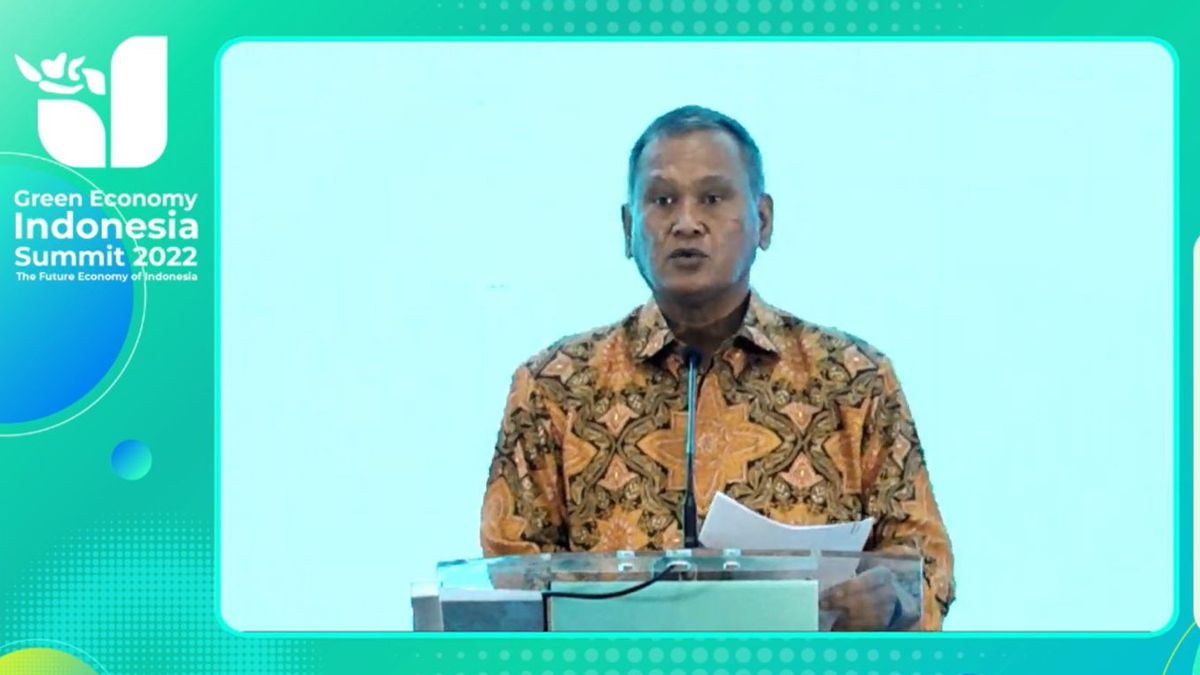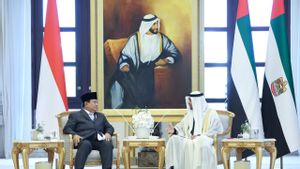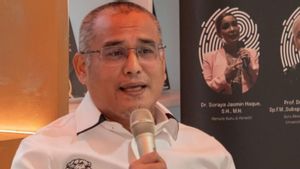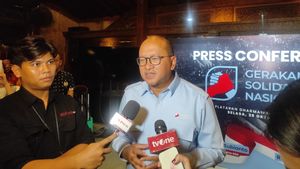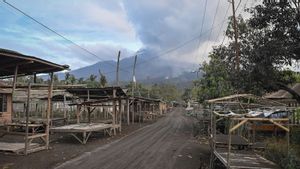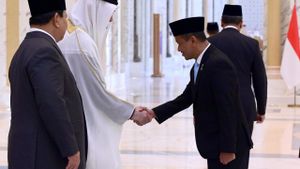JAKARTA - Secretary General of the Ministry of Energy and Mineral Resources, Ego Syahrial, revealed that the direction of the current national energy policy is to implement an energy transition, namely from foil energy to energy that is cleaner, less emissions and environmentally friendly, especially with a focus on developing renewable energy.
Ego said that in 2021, the realization of the NRE portion in Indonesia's energy mix only reached 11.7 percent.
"It's still far from the target we set for 2023. Hard work is needed to overcome the gap between 11.7 to 2023 percent in 2025," he said at the Green Economy Indonesia Summit 2022 in Jakarta, Wednesday, May 11.
Meanwhile, efforts are being made by the government to promote the implementation of environmentally friendly power plants such as Rooftop Solar Power Plants (PLTS).
To date, he said, Indonesia has a 3.6 gigawatt rooftop Solar Power Plant (PLTS) program with a potential mix increase of 0.8 percent.
"The most important thing is that we have to focus on developing NRE with a target of 10.6 MW by 2025 which will contribute 11.7 percent in our energy mix," continued Ego.
Furthermore, he said, the Government is also intensifying the application of biofuels as much as 11.6 million kiloliters (KL) with the potential to increase the mix by 4 percent.
Other potentials that can increase the renewable energy mix by 6.5 percent include the obligation to build new renewable energy plants outside PLN's business areas, increase in biofuels, and expand the co-firing program for steam power plants owned by PLN and the private sector.
Ego said that in order for the development of new and renewable energy to run well, several regulations are needed to support the acceleration of the development of new and renewable energy, including the Presidential Regulation concerning the purchase of new and renewable energy which will make the price of clean electricity more competitive and able to compete with fossil energy.
"We also want to provide convenience in business licensing that comes from the relevant ministries, of course we also need fiscal and non-fiscal incentives for EBT development," he said.
Not only that, he said, recently the government has published the 2021-2030 Electric Power Supply Business Plan (RUPTL).
According to him, the RUPTL 2021-2030 is greener because the portion of new and renewable energy (EBT) is bigger, namely 51.6 percent, while the portion of fossil energy is lower at 48 percent.
"We will continue to develop more massive NRE, including PLTS, biomass, Geothermal Power Plants, Wind Power Plants, Hydro and Nuclear Power Plants," he concluded.
The English, Chinese, Japanese, Arabic, and French versions are automatically generated by the AI. So there may still be inaccuracies in translating, please always see Indonesian as our main language. (system supported by DigitalSiber.id)
